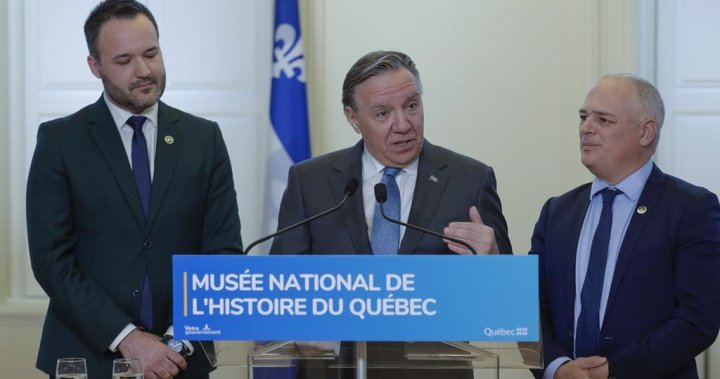The Quebec government’s plan to open a new museum dedicated to the history of the Québécois nation has sparked controversy and raised questions about how history is told and who it includes. Premier François Legault faced criticism for suggesting that Quebec’s history began with the arrival of French explorers in the 16th and 17th centuries, potentially erasing Indigenous history on the territory. Historians and Indigenous leaders have pointed out the political implications of framing history, and the need to consider whose stories are centered and who is excluded from the narrative.
Legault defended his comments by stating that the new Musée national de l’histoire du Québec, set to open in 2026, will focus on the history of the French-speaking Québécois nation while not excluding Indigenous people. However, critics argue that focusing on prominent figures like artists and athletes represents a narrow and uncritical approach to history. They point out that Indigenous contributions are essential to understanding the history of Quebec, and their perspectives should be included in the museum’s programming to provide a more comprehensive and accurate portrayal of the province’s past.
The Assembly of First Nations Quebec-Labrador Chief Ghislain Picard expressed disappointment that Indigenous peoples were not consulted or included in the committee shaping the museum’s content. He emphasized the importance of recognizing Indigenous contributions to Quebec’s history, stating that without the presence and actions of Indigenous peoples, the province’s history would be incomplete. Picard called for more meaningful engagement with Indigenous communities to ensure their voices are heard and their perspectives are included in the telling of Quebec’s history.
Historian Éric Bédard’s statement that history begins with writing and considers Indigenous people to represent the prehistory of Quebec has also attracted criticism. Other historians, such as Ronald Rudin, argue that traditional written history often focuses on powerful men, neglecting the experiences of women, working-class individuals, and Indigenous populations whose stories may not have been documented. They advocate for a more inclusive approach that recognizes the diverse voices and experiences that have shaped Quebec’s history throughout the centuries.
The debate surrounding the new history museum reflects larger questions about national identity, historical representation, and the complexities of telling a complete and accurate story. As Quebec grapples with how to commemorate its past and celebrate its cultural heritage, it will be essential to consider the diverse perspectives of all communities that have contributed to the province’s rich history. By engaging in meaningful dialogue and consultation with Indigenous groups, historians, and community members, the museum can strive to present a more nuanced and inclusive narrative that reflects the true complexity of Quebec’s past.含


